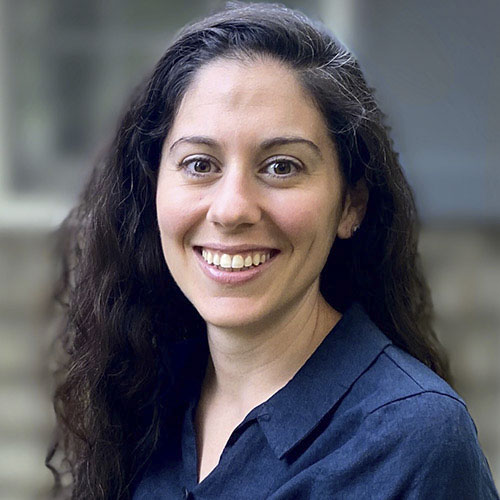March 9, 2023
ME Assistant Professor Michelle DiBenedetto received the prestigious National Science Foundation (NSF) Faculty Early Career Development Program (CAREER) award in January 2023. The NSF awarded about $568,000 over five years to support DiBenedetto’s research focused on the transport of microplastics and other buoyant particles at the ocean surface.

Michelle DiBenedetto
Plastic pollution, which may break into tiny pieces known as microplastics, affects the health of marine ecosystems worldwide. Most microplastics are in the ocean surface boundary layer. However, little is known about how the tiny particles interact with the surrounding waves and turbulence, which makes it difficult to predict their fate and transport.
DiBenedetto’s research will examine the interactions among waves, turbulence and buoyant particles to enable more accurate modeling of microplastics transport. By improving understanding of where microplastics end up and how quickly they degrade in the ocean, this research could lead to more effective remediation and prevention efforts.
“We’re trying to develop a framework for thinking about microplastics at the ocean surface, which have highlighted new questions in fluid dynamics and multiphase flows,” DiBenedetto says.
In the first part of the project, her lab will conduct experiments and observe plastic particles under a variety of conditions at the Washington Air Sea Interaction Research Facility (WASIRF), a wind-wave facility that simulates the ocean surface in the UW’s Harris Hydraulics Laboratory. DiBenedetto will use advanced optical techniques, including a 3D particle tracking method using multiple overlapping cameras.
“We’re excited to track particles from above and below the ocean surface,” she says. “Our experiments will track particles as they get submerged by breaking waves and observe how they are mixed.”
Using these observations, DiBenedetto’s team will develop models describing vertical mixing and transport of microplastics at the ocean surface. She will begin by leveraging analogues to a much longer-studied problem: the transport of sediment in the ocean.
“In sediment transport models, the heaviest objects end up at the bottom of the ocean,” she says. “We want to turn that model upside down because the top of the ocean is very different from the bottom, and microplastics are buoyant and rise up to the surface.”
The models will be relevant not only for microplastics but also for understanding the dynamics of nutrients, tiny organisms and even bubbles, which are important for understanding how gasses like carbon dioxide are exchanged between the ocean and atmosphere.
With the award, DiBenedetto will also partner with local beach-cleanup organizations to share her research through outreach events, incorporate more data science into the ME undergraduate curriculum and build a fluid mechanics community among graduate students at the UW.
Before joining the UW in 2020, DiBenedetto was a postdoctoral scholar at the Woods Hole Oceanographic Institution. She has a Ph.D. and M.S. in civil and environmental engineering from Stanford University and a B.S. in environmental engineering from Cornell University.